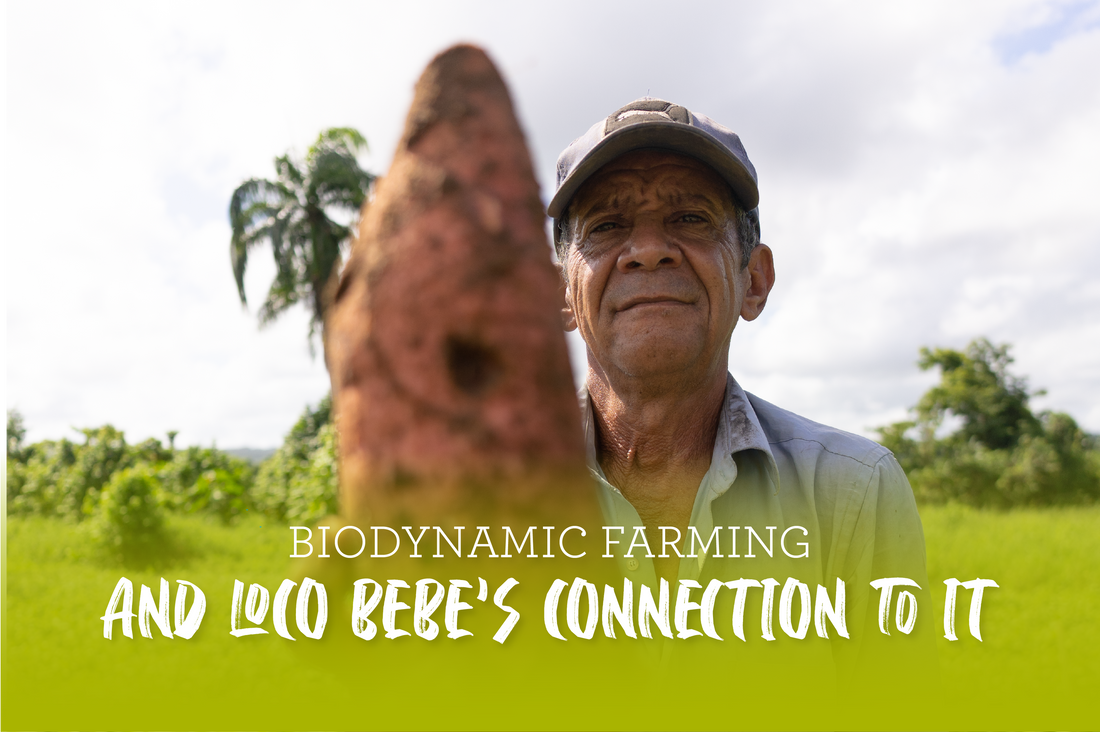
BioDynamic Farming and Loco Bebe's connection to it.
By The Graphic OnionBeing a mother and the founder of an organic baby food business with FDA certification, I am aware that parents worry about the quality and security of the food they feed their kids. The use of pesticides, fertilizers, and other dangerous chemicals in the manufacturing of traditional foods is one of the most important worries that we have when we go to the store and find ourselves in front of endless shelves full of different options for our little ones.
In response to this worry, I passionately support biodynamic farming, a holistic method of agriculture that encourages the interdependence of all living things and the utilization of natural processes to build wholesome and durable ecosystems.

What is Biodynamic Farming?
It’s an agricultural technique that goes beyond organic farming. The Austrian philosopher Rudolf Steiner, who thought that a farm should be considered as a living organism with its own particular ecology, laid the foundation for it (Not the actual implementation of the concepts that we now use) .
Composting, crop rotation, and the use of cover crops are only a few examples of the natural processes that biodynamic farming promotes for the creation of healthy and sustainable ecosystems.
Contrary to conventional farming, which makes use of artificial fertilizers, pesticides, and other chemicals to manage pests and maintain soil fertility, biodynamic farming places emphasis on using sustainable, natural methods to build nutrient-rich soil, encourage biodiversity, and lessen the carbon footprint of agriculture.
What Justifies the Need of Biodynamic Farming for Infant Food?
Because it offers several significant advantages that can help secure the health and wellbeing of young children, biodynamic farming is particularly crucial for baby food. Some examples are:
-Soil that is nutrient-rich.
Biodynamic farming techniques aid in the creation of soil that is nutrient-rich, which is necessary for the growth of healthy crops which translate as better, and more nutritional produce used in the manufacturing of tasty snacks.
-Pesticides and fertilizers made from synthetic materials are not used in biodynamic farming.
Instead, organic techniques like composting, cover crops, and crop rotation are utilized to preserve soil fertility and control pests. So, the final product is devoid of potentially dangerous toxins for young children and adults.
-Sustainable farming techniques raise biodiversity and lowers agriculture's carbon footprint.
The environment is being preserved for future generations as a result of this practices, ensuring that our offspring and grandchildren will have an easier time having access to wholesome, sustainable food supplies in the future.
-Crops that taste better and have higher quality are produced.
Better ingredients, tastier food, and snacks for our little ones to enjoy.

As a result
This method is more than just a few rules or band aid patches to prove we are “Green” enough to get a certification, it is an important farming technique that is crucial for our children's health. By promoting it, we contribute to the development of a long-lasting food system for future generations.
I think it's critical for all parents to have access to sustainable, wholesome, and healthful food options for their kids, and by applying these simple rules to our production, we are creating exactly the product we intended to make when the need arised for us at the moment we first started having children.
What do you think about these practices? Do you feel like learning more about this kind of topic? Tell us! We are on Instagram, TikTok, Facebook and Pinterest, always glad and ready to hear your thoughts and answer your questions!
Subscribe to our newsletter and never miss articles like this one or parenting related ones.